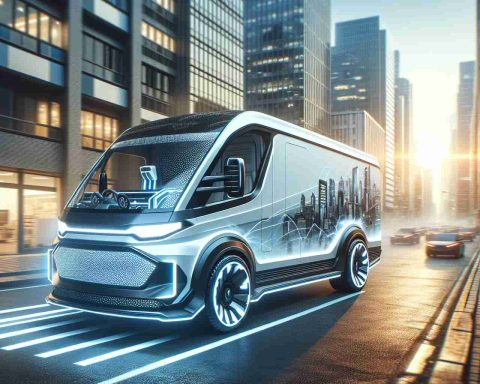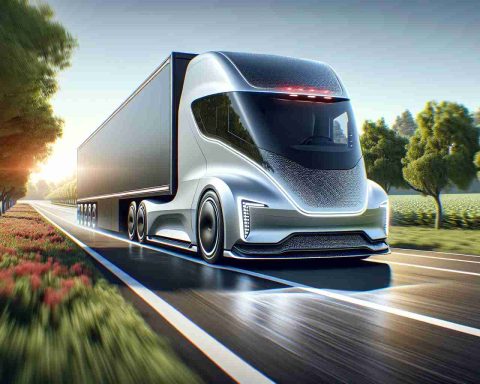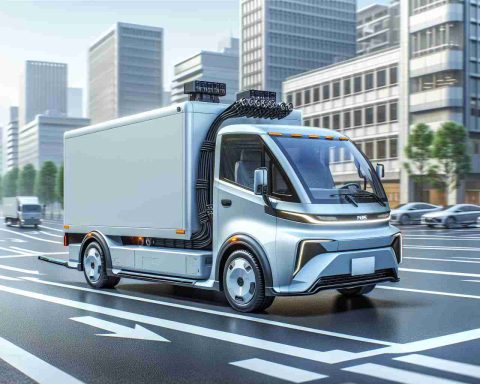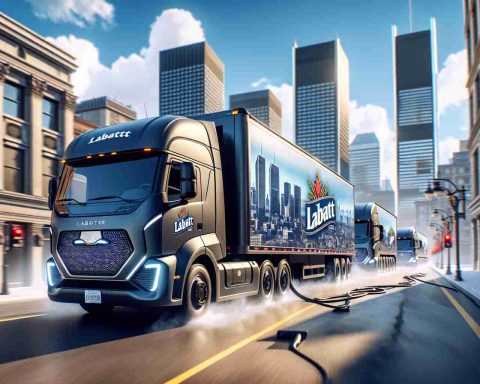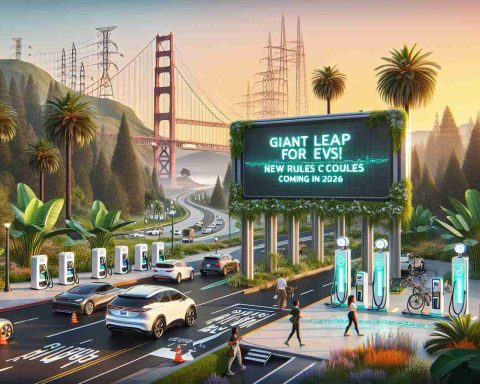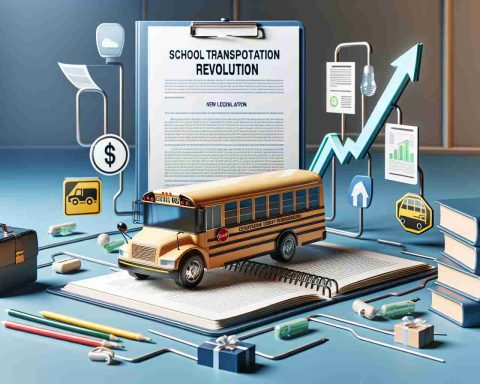Bridging the Gap Between Innovation and Reality
In the rapidly advancing realm of sustainable transportation, recent events surrounding Lion Electric Co., a key player in the electric vehicle (EV) industry, shed light on the often overlooked challenges of transitioning to green technology. While the announcement of Lion Electric preparing for credit protection has alarmed many, it serves as a critical case study on the complexities of integrating innovation within established systems.
The Ripple Effect on Maine’s Schools
As educational institutions across Maine grappling with eco-friendly aspirations watch the unfolding financial tribulations of Lion Electric, they witness firsthand how financial volatility can disrupt sustainable initiatives. Several schools relying on electric buses provided through the state’s Clean School Bus Program face uncertainties about future operations.
Lessons in Financial Viability
The fiscal hurdles Lion Electric faces, accentuated by insurmountable debt and workforce reductions, underscore a vital lesson for the industry: financial health must accompany technological strides. The layoff of hundreds and the shutdown of a key assembly plant spotlight the precarious balance manufacturers navigate between innovation and financial sustainability.
Safety First in Green Transition
Lion Electric’s recall due to quality concerns of critical safety features like heating and braking systems propels a broader discussion on ensuring technological readiness before implementing widespread change. Until these kinks are ironed out, trust in promoting green transport options remains fragile, affecting stakeholders from policymakers to students.
A Cautious Optimism
Despite these setbacks, some districts maintain a cautious optimism, heralding their commitment to a greener future. Exploring alternatives like leasing diesel buses symbolizes not just a temporary solution but a determination to keep sustainable goals alive amidst current challenges.
Path Forward for the EV Landscape
The path for electric buses and related technology in education will hinge on a balanced approach, learning from instances like Lion Electric’s journey. As the demand for sustainable transport grows, the ability to marry financial and operational viability with innovation will dictate who leads the next wave in eco-conscious commuting for the future.
New Insights into Lion Electric’s Dilemmas: What the Future Holds for Electric Vehicles
Innovative Solutions Amid Challenges
The recent tribulations of Lion Electric Co. spotlight a pivotal moment for the electric vehicle (EV) industry. As the company navigates the turbulent waters of financial instability, it brings to the forefront the essential need for an integrative approach to sustainable transportation solutions. The industry’s adaptation will require creative problem-solving, focusing on both technological advancements and financial sustainability.
Industry Trends and Innovations
Recent trends indicate a shift towards developing hybrid transportation solutions that combine the benefits of traditional and electric-powered vehicles. Industry innovators are increasingly exploring advanced battery technologies and improved energy management systems to enhance vehicle performance and reliability. This shift underscores a move toward more sustainable and cost-effective solutions in both urban and rural transportation networks.
Market Analysis: The Broader Impact
Lion Electric’s financial woes have broader implications for the EV market. A detailed market analysis reveals a potential slow-down in the adoption rate due to hesitations from institutions and individual consumers witnessing the challenges faced by early adopters. However, this hesitancy may be counterbalanced by research and development into next-generation batteries and infrastructure improvements around charging stations, which could provide new growth opportunities.
Security and Sustainability Aspects
The emphasis on safety and sustainability has never been higher. Addressing security aspects such as reliable braking and thermal management systems is critical to gaining consumer confidence. Furthermore, the environmental impact of manufacturing processes and vehicle end-of-life disposal are gaining focus in ensuring that the EV sector genuinely contributes to a greener planet.
Predictions and Future Directions
In forecasting the future, experts predict tighter integration between technology providers and financial institutions to support robust business models for electric vehicle manufacturers. There’s a growing consensus on the importance of forming cross-industry alliances to leverage strengths across sectors and drive innovation.
Tutorials and Educational Initiatives
Educational initiatives continue to play a crucial role in bridging information gaps. As the demand for skilled professionals in sustainable transportation grows, universities and tech institutes are rolling out comprehensive EV-focused curricula. These programs aim to equip the next generation with the necessary skills to drive progress in this evolving field.
Exploring Compatibility and Use Cases
Compatibility issues, such as standardizing EV charging interfaces across different manufacturers, remain a focal area. By addressing these, there is potential to improve the user experience significantly. Additionally, new use cases in sectors like urban public transportation and long-distance freight provide a plethora of opportunities for technological application and market expansion.
By learning from Lion Electric’s experiences, the EV industry can navigate the tumultuous path toward sustainability more effectively. For further information on electric vehicle advancements and market trends, consider visiting Lion Electric and other leading automotive websites.




